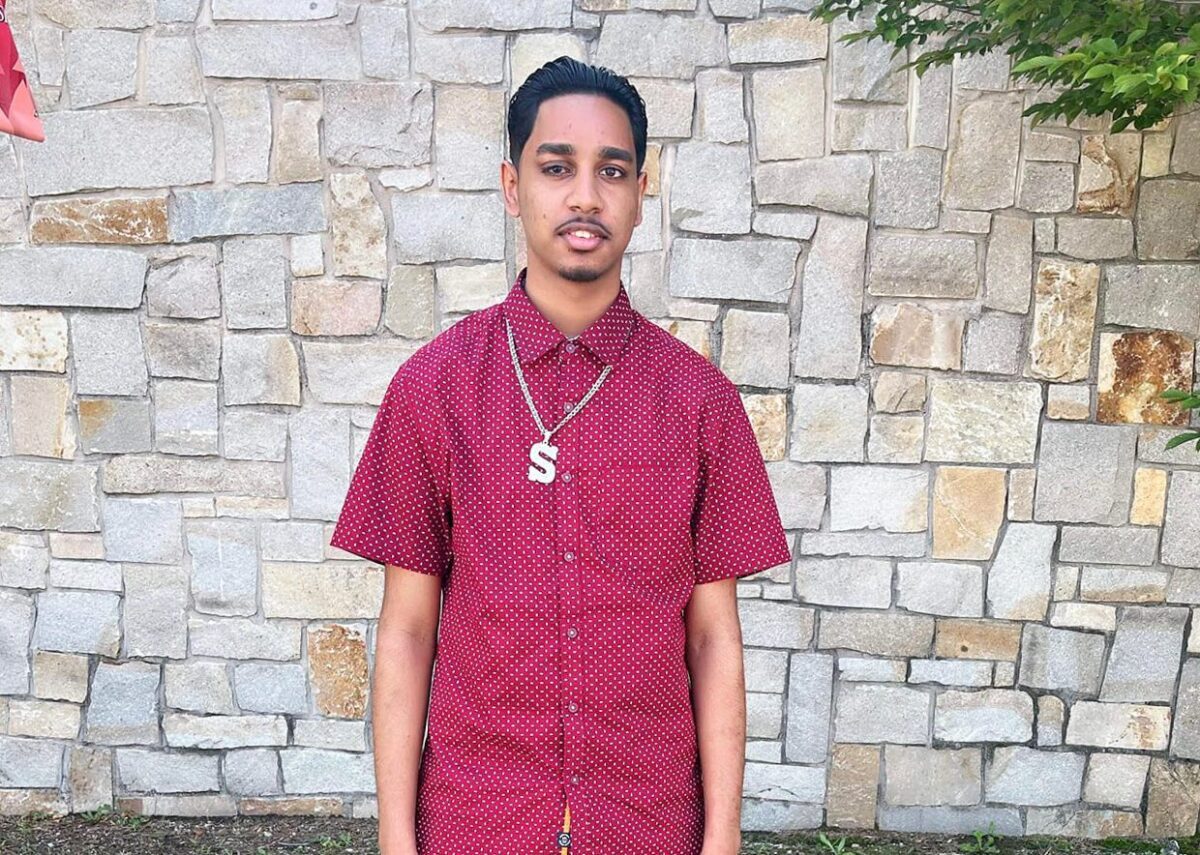Two 13-year-old boys appeared before a judge today (26 September) to face the consequences of their roles in the brutal murder of 19-year-old Shawn Seesahai from Anguilla.
The children, whose identities are protected by law, used a machete to kill Seesahai in a Wolverhampton park in England last November when they were just 12 years old.
A jury found them both guilty of murder following a 20-day trial which concluded on 10 June.
The boys, who have been in custody for more than 10 months, now face a two-day sentencing hearing before Justice Amanda Tipples at Nottingham Crown Court.
During the first day, the court heard an emotional statement from the family, sentencing guidelines, and aggravating and mitigating factors from the prosecution and defence.
The proceedings began with Crown prosecutor Michelle Heeley KC summarising the harrowing details of the case.
‘Equally liable’
Heeley said that on evening of 13 November, 2023, Seesahai, who was in England for medical treatment, and his friend were in Stowlawn playing fields in Wolseley Road waiting for another friend.
The two young defendants entered the park shortly after 8pm, Heeley said. The first defendant had brought a machete with him that he had purchased a month previously.
A witness said the boys saw Seesahai, and the first defendant told him to “Keep stepping”. They then sat on a bench in the park until the victim and his friend returned.
There was a confrontation at the bench, and the court heard conflicting evidence as to whether the first defendant pulled the knife from his trousers or whether it was on the ground, the prosecutor said.
A witness said they saw the first defendant hand the machete to the second defendant who then used it to stab Seesahai while the first defendant punched and kicked him.
The victim suffered four sharp force injuries, including a chopping injury to his skull and the fatal blow which penetrated his body to a depth of 23 centimetres.
“The jury was sure the two boys acted together and are thus equally liable for the attack upon Shawn Seesahai,” Heeley said.
‘Worst nightmare’
Dorothea Hodge, the UK and international representative for the Government of Anguilla, read out a statement on behalf of Seesahai’s family, who were watching the hearing on video link.
“We as a family are struggling in so many ways since Shawn was taken from us, especially in the horrific way that he was taken,” she read.
“Losing a child is a parent worst nightmare. To put it all down in a statement on how it has impacted our lives could take more than a day to read.
“It has left a huge hole in the pit of our stomach, which nothing can fill. We are devastated, as a family, totally heartbroken and confused.”
The statement said Seesahai was incredibly close to his younger sister, Shana, and they were best friends.
“It is hard to imagine how she will ever come to terms with this death,” Hodge read.
Seesahai’s family said that as well as the emotional and mental anguish, they have also suffered financially due to the cost of repatriating his body and attending the trial.
They described Seesahai as a very loving child who was helpful, honest, hardworking, brave, generous, compassionate, humble and confident with a unique personality.
“We will always miss him. He will never be replaced by anyone, because he is irreplaceable. We will always love Shawn, and he will always have a special place in our hearts,” Hodge read.
‘Youngest knife murderers’
Heeley told the court that the starting point for sentencing a child under 14 of murder is 13 years of detention at His Majesty’s pleasure, subject to mitigating and aggravating factors.
The aggravating factors include that it was an attack by two people on one, it involved the use of a weapon and the first defendant accepted during the trial that he regularly carried the knife, she said.
In mitigation, the prosecutor said it is accepted there was a lack of premeditation, and the judge must consider whether there was intention to cause really serious harm or to kill.
Heeley reminded the court that there was more than one blow with the machete – the blow to the skull which cut through bone, and the other blow that went through almost the entire body.
She told the judge in terms of sentencing that “these are the youngest knife murderers” and there is little precedent.
“For both defendants, the sentence should focus on rehabilitation and consider the effect of the sentence on the child,” Heeley said, adding: “Custody is the only option in this case.”
Remorse and guilt
The prosecutor said the first defendant “continues to deny the offence – there is therefore no acceptance of guilt, no demonstration of remorse”.
However, he recognised the impact the offence had on the victim’s family, specifically as to welfare, she told the court.
His pre-sentence report notes that he has experienced “significant trauma” in his life, he has ADHD and neurodevelopment issues.
He is also known to be at high risk of child criminal exploitation, he regularly carried knives, and comes from a deprived home with experience of offending from family members.
“We have already accepted the offence was not planned, however, in [the first defendant’s] case, he took steps to conceal the evidence post offence,” she said.
Heeley told the court that the second defendant also denies the offence but expresses remorse for what happened.
He does not have the same mental welfare issues as defendant one, has engaged well while in custody, and has “displayed a maturity beyond his years”, the prosecutor said.
She added that he has been assessed as being a medium to high risk of serious harm to others.
‘Groomed, exploited and trafficked’
Defence lawyer Rachel Brand KC, representing the first defendant, reminded the court that the crime was not premeditated, despite the fact he owned the machete and took it to the scene.
She said the court is dealing with a child who is immature compared to others of his age, and lacked the foresight of the consequences of his actions as well as ability to regulate his behaviour.
Evidence shows he used his fists and feet during the attack and did not wield the machete. He also wishes he had not taken the machete to the scene, Brand told the court.
The defence lawyer said his grandmother did her best to raise him, but the first defendant is a vulnerable child and was often found in places late at night with no explanation as to how he got there.
“He had been groomed, exploited and trafficked by older youths and young men in the wider community who had encouraged him towards criminalising and the possession of knives,” she said.
Since his arrest he has been in youth detention in a secure unit and has made “very positive progress”, developing consistent, trusting and supportive relationships with staff.
She concluded by saying that “there can be optimism” that the first defendant’s behaviour can be turned around, and asked the judge to “impose a minimum term” to give him hope for release.
Second defendant overview
Defence lawyer Paul Lewis KC, representing the second defendant, said it was not accepted at the trial that it was the young boy’s desire to inflict fatal injuries.
He reminded the court that during the trial both defendants blamed each other, and the evidence of one of the witnesses on who was holding the machete did not tally with another.
Lewis said it was the first defendant who took the machete out that evening, who “habitually carried one” and who was the involved in the initial confrontation.
The second defendant “made no attempts to dispose of evidence by cleaning the knife with bleach, as did his co-defendant”, the defence lawyer added.
He went on to tell the court that his client’s behaviour at school had “not been an issue”.
“I don’t put him forward as a model pupil. He can be disruptive in class, his attendance rate is not of the best, but he’s posed no real difficulties,” he said.
Lewis added that since his remand, his behaviour has been “nothing short of admirable” and his prospects of rehabilitation are excellent. He asked the judge for the “absolute minimum” sentence.
The hearing has been adjourned and will the judge will deliver her sentences at Nottingham Crown Court on 26 September at 11am BST.





